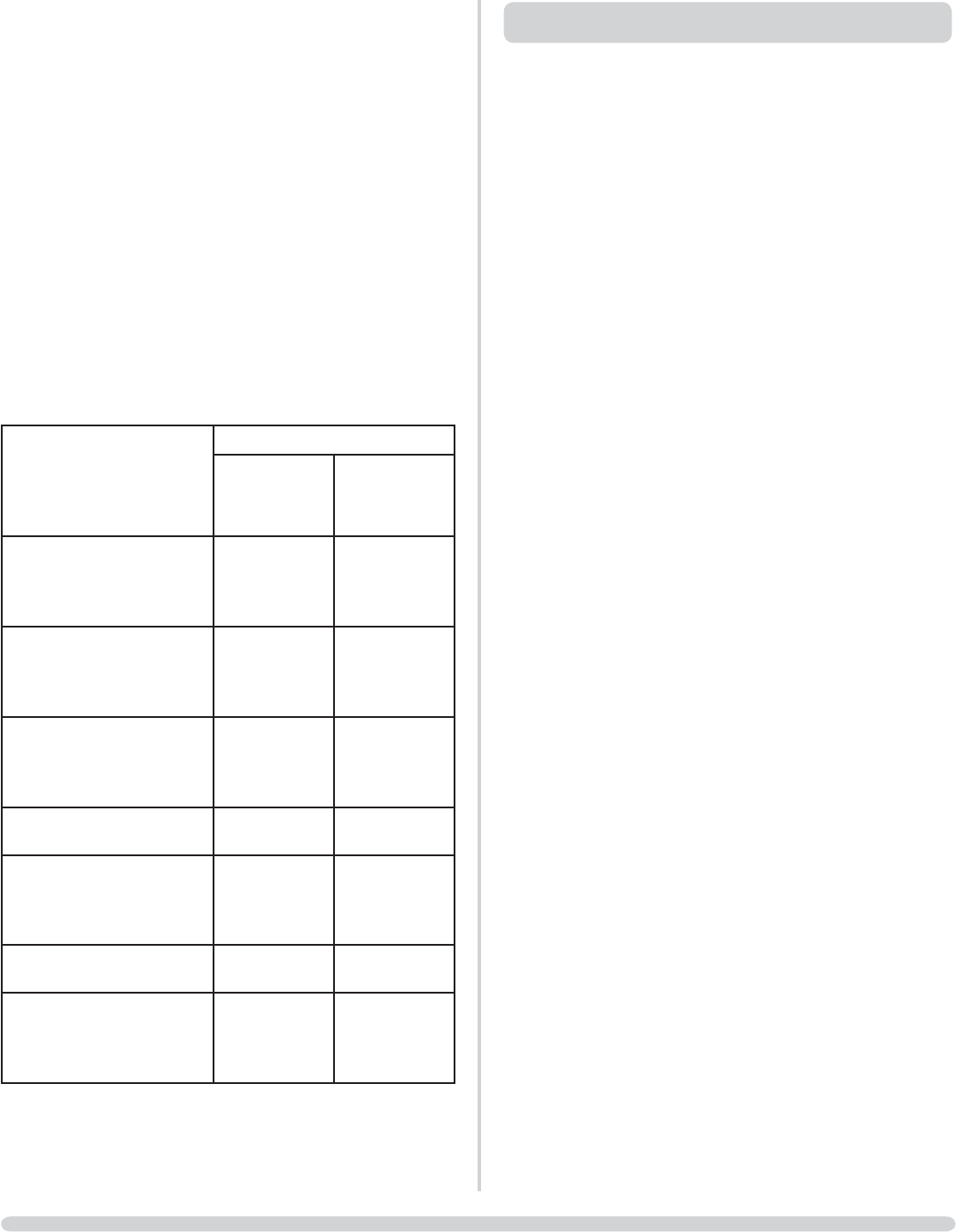
8
OPERATING INSTRUCTIONS
A number of factors can affect the performance of the
Huntingdon stove. Some of these are listed.
10.1
Fuel Quality (Wood)
Use only seasoned wood with a moisture content of
less than 20%. Well seasoned logs should have the bark
beginning to lift and peel away, along with deep cracks
radiating from the centre of the log. Logs should feel lighter
than fresh cut wood of a similar size and sound hollow
when struck against each other. Logs should not feel damp
to the touch, have any visible moisture oozing from them or
moss and fungal growths on them.
Symptoms of poor performance related to wet woods
include:
• Difficulty getting a fire going and keeping it burning well,
• Smoky fires with little flame,
• Dirty glass,
• Dirty firebricks,
• Rapid creosote build-up in the chimney,
• Low heat output,
• Short burn times, excessive fuel consumption and
blue/grey smoke from the chimney.
To help avoid large build-ups of tars and creosote within
the stove and the flue system, it is recommended to burn
at high output for at least 30 minutes each day. The use of
Stovax Protector chimney cleaner will also help to reduce
this problem.
10.2
Fuel Quality (Solid Fuel)
Use only recommended solid fuels, which are approved for
use with closed appliances. Symptoms of poor performance
related to unsuitable fuels include:
• Difficulty getting a fire going and keeping it burning well,
• Smoky fires with little flame,
• Dirty glass,
• Dirty firebricks,
• Short life span for grate, baffles and internal firebricks,
• Permanent staining of glass.
10.3
Backpuffing
This is caused by a lack of combustion air entering the
firebox causing combustion gases to build up in the firebox
and periodically ignite as small explosions, causing smoke to
puff out of the appliance air inlets and other openings. The
problem will often occur if the air controls are shut soon
after adding new fuel to a very hot fire. To stop backpuffing
occurring open the air controls to increase the combustion
air and increase the burning rate.
10.4 Flue Draught
The chimney has two main functions, which are, to safely
remove the smoke, gases and fumes from the house, and
to provide a sufficient amount of draught (suction) in the
Huntingdon stove to ensure that the fire is kept burning.
Draught is caused by the rising hot air in the chimney when
the Huntingdon stove is lit.
• Dirty glass,
• Rapid creosote build-up in the chimney,
• Low heat output,
• Short burn times, excessive fuel consumption and
blue/grey smoke from the chimney.
To help avoid large build-ups of tars and creosote within
the stove and the flue system, it is recommended to burn
at high output for at least 30 minutes each day. The use of
Stovax Protector chimney cleaner will also help to reduce
this problem (Stovax Part No. 7002).
9.2 Solid fuel: Burn only manufactured briquetted smokeless
fuels, listed as suitable for use with closed heating stoves.
Do not burn bituminous coal, ‘petro-coke’ or other
petroleum based fuels, as this will invalidate the product
guarantee.
9.3
Fuel consumption at nominal heat output.
As tested at nominal heat output to the requirements of EN
13240: 2001 for intermittent operation.
9.4 If you require advice on suitable solid fuels contact your
local Approved Coal Merchant. Details can be obtained by
ringing the Solid Fuel Association advice line on Freephone
0800 600 000. Or their web site at www.solidfuel.co.uk
10. BURNING PERFORMANCE
Description
Fuel Consumption
Kg/hour
Wood
Kg/hour
Briquetted
Smokeless fuel
7057
7058
7058BL
7058LG
Huntingdon 25 1.45
0.69
7064
7065
7065BL
7065LG
Huntingdon 28
1.90 0.92
7054
7055
7055BL
7055LG
Huntingdon 30
1.90 0.92
7063
Huntingdon 35
(wood)
2.05
n/a
7060
7061
7061BL
7061LG
Huntingdon 35
(multi-fuel)
2.05
0.95
7069
Huntingdon 40
(wood)
2.66
n/a
7074
7075
7075BL
7075LG
Huntingdon 40
(multi-fuel)
2.66 1.26


















